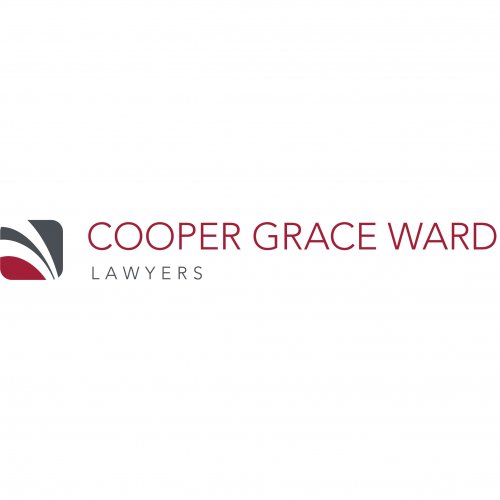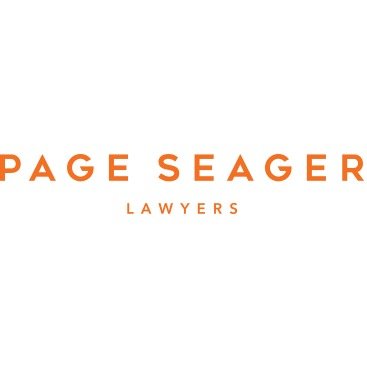Best Banking & Finance Lawyers in Australia
Share your needs with us, get contacted by law firms.
Free. Takes 2 min.
Or refine your search by selecting a city:
List of the best lawyers in Australia
About Banking & Finance Law in Australia
Banking and finance law in Australia is a comprehensive area of legal practice that governs the management of money, investment transactions, and financial services. Australia boasts a robust and globally integrated financial system that is critical to its national economy. The country’s regulatory framework is designed to ensure financial stability, consumer protection, and promote competition and efficiency within the banking and finance sector. Major regulatory bodies include the Australian Prudential Regulation Authority (APRA), the Australian Securities and Investments Commission (ASIC), and the Reserve Bank of Australia (RBA).
Why You May Need a Lawyer
There are several situations in which individuals or businesses might seek legal advice in the realm of banking and finance:
- Loan Agreements: Legal assistance may be necessary when negotiating or drafting loan agreements to ensure terms are clear and in compliance with legal standards.
- Regulatory Compliance: Businesses may require guidance in adhering to complex financial regulations, potentially avoiding costly penalties.
- Dispute Resolution: Expertise might be needed in resolving disputes involving lenders, investors, or other financial institutions.
- Investment Advice: Legal advice can be essential when navigating investment opportunities to understand associated risks and legal implications.
- Consumer Credit Issues: Individuals might seek legal assistance regarding personal credit concerns or financial hardship situations.
Local Laws Overview
Australia's banking and finance laws are shaped by a combination of legislation and regulatory oversight. Key aspects include:
- Banking Act 1959: Governs the conduct of banks and financial companies, focusing on their prudential regulation by APRA.
- Corporations Act 2001: Comprehensive legislation that regulates financial markets, securities, investments, takeovers, and fundraising.
- National Consumer Credit Protection Act 2009: Regulates consumer credit and mortgage brokering activities to ensure transparency and fairness.
- Financial Sector Reform: Continuous legislative reforms are introduced to ensure the sector remains competitive and resilient.
Frequently Asked Questions
1. What is the role of APRA in the Australian banking system?
APRA is responsible for the prudential regulation of banks, credit unions, building societies, and other financial institutions to ensure their financial stability and protect depositors.
2. How can I resolve a dispute with my bank?
Disputes can often be resolved by direct negotiation with your bank. If unsuccessful, you can escalate the issue to the Australian Financial Complaints Authority (AFCA) for mediation.
3. What protections do I have as a consumer under Australian law?
Consumers are protected under laws like the National Consumer Credit Protection Act, which mandates responsible lending practices and provides rights for financial hardship arrangements.
4. Do I need a license to lend money in Australia?
Yes, lenders must hold an Australian Credit License when providing consumer credit. This license is issued by ASIC and ensures compliance with credit laws and regulations.
5. What steps should I take if I suspect financial fraud?
If you suspect financial fraud, report it immediately to your financial institution and consider contacting the Australian Cyber Security Centre or the police if necessary.
6. Can I take legal action for predatory lending practices?
Yes, if you believe you have been subject to predatory lending, you may have legal grounds for action. It is advisable to consult a legal professional for guidance.
7. How are interest rates regulated in Australia?
Interest rates are influenced by the Reserve Bank of Australia's monetary policy but are set by individual financial institutions. Competition ensures they remain fair and reflective of market conditions.
8. What is a financial services license and who needs one?
A financial services license is required for businesses providing financial advice or dealing in financial products. It ensures businesses meet certain ethical and operational standards.
9. How can a lawyer help with financial restructuring?
A lawyer can help navigate the complex legal requirements of financial restructuring, negotiating with creditors, and ensuring compliance with regulatory obligations.
10. What are the legal considerations for investing in cryptocurrency in Australia?
While cryptocurrencies are legal in Australia, they are subject to tax and anti-money laundering laws. It is crucial to understand these regulations before investing.
Additional Resources
Consider exploring the following resources and organizations for more information and assistance:
- Australian Securities and Investments Commission (ASIC): Information on consumer rights, financial planning, and investment advice.
- Australian Financial Complaints Authority (AFCA): Offers dispute resolution services between consumers and financial firms.
- Financial Rights Legal Centre: Provides financial legal advice and services to consumers facing financial stress.
- The Reserve Bank of Australia (RBA): Offers insights on monetary policy and economic conditions influencing the financial market.
Next Steps
If you require legal assistance in banking and finance, consider the following steps:
- Identify the Issue: Clearly understand the nature of your legal issue or concern to articulate your needs effectively.
- Consult a Professional: Contact a legal professional specializing in banking and finance law for tailored advice and representation.
- Prepare your Documentation: Gather all relevant paperwork and financial records prior to your consultation for a more efficient process.
- Explore Legal Aid Options: If cost is a concern, investigate available legal aid services or pro bono resources.
By taking these steps, you can ensure you are well-equipped to address any legal concerns in the complex field of banking and finance.
Lawzana helps you find the best lawyers and law firms in Australia through a curated and pre-screened list of qualified legal professionals. Our platform offers rankings and detailed profiles of attorneys and law firms, allowing you to compare based on practice areas, including Banking & Finance, experience, and client feedback.
Each profile includes a description of the firm's areas of practice, client reviews, team members and partners, year of establishment, spoken languages, office locations, contact information, social media presence, and any published articles or resources. Most firms on our platform speak English and are experienced in both local and international legal matters.
Get a quote from top-rated law firms in Australia — quickly, securely, and without unnecessary hassle.
Disclaimer:
The information provided on this page is for general informational purposes only and does not constitute legal advice. While we strive to ensure the accuracy and relevance of the content, legal information may change over time, and interpretations of the law can vary. You should always consult with a qualified legal professional for advice specific to your situation.
We disclaim all liability for actions taken or not taken based on the content of this page. If you believe any information is incorrect or outdated, please contact us, and we will review and update it where appropriate.
Browse banking & finance law firms by service in Australia
Australia Attorneys in related practice areas.
Browse banking & finance law firms by city in Australia
Refine your search by selecting a city.

















